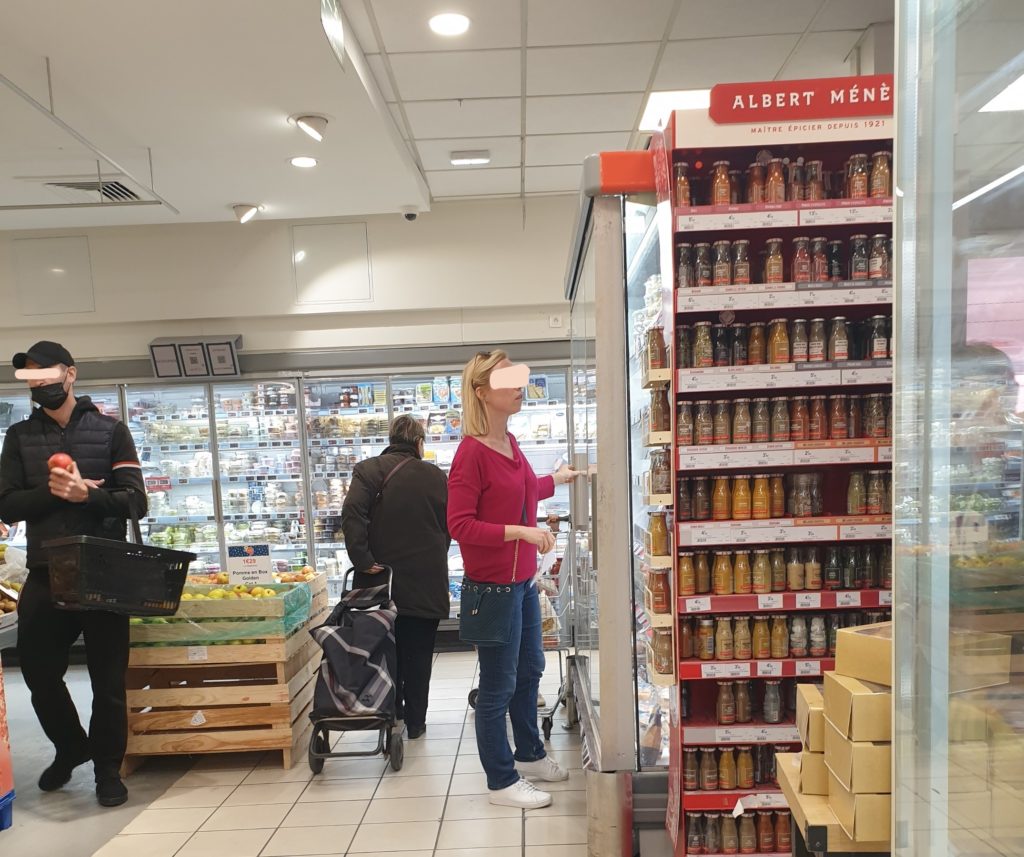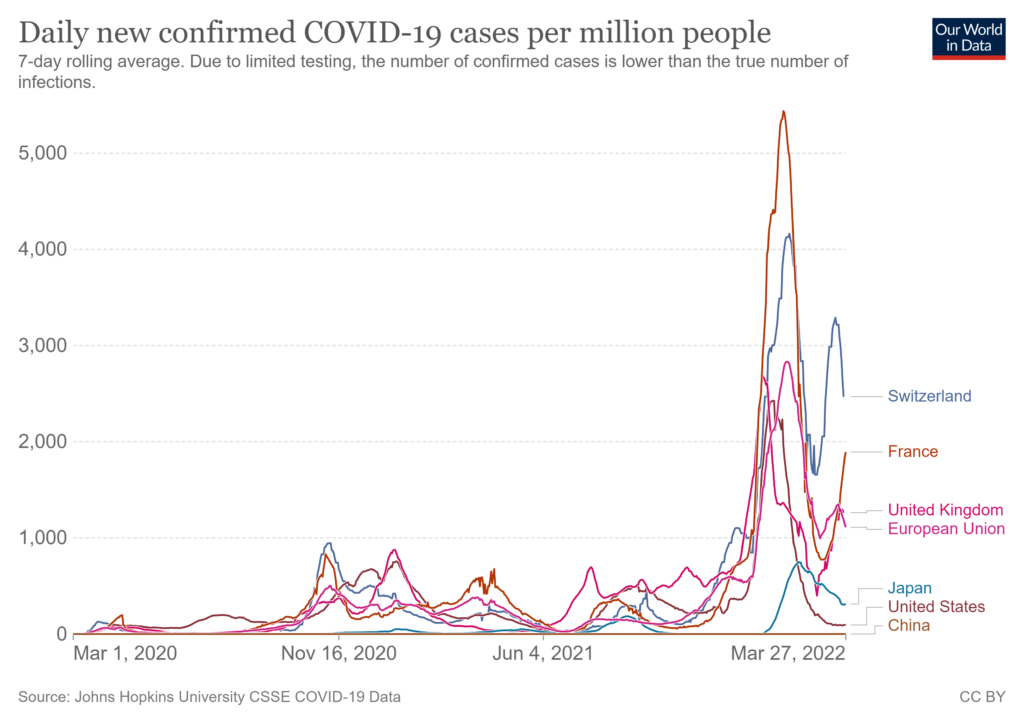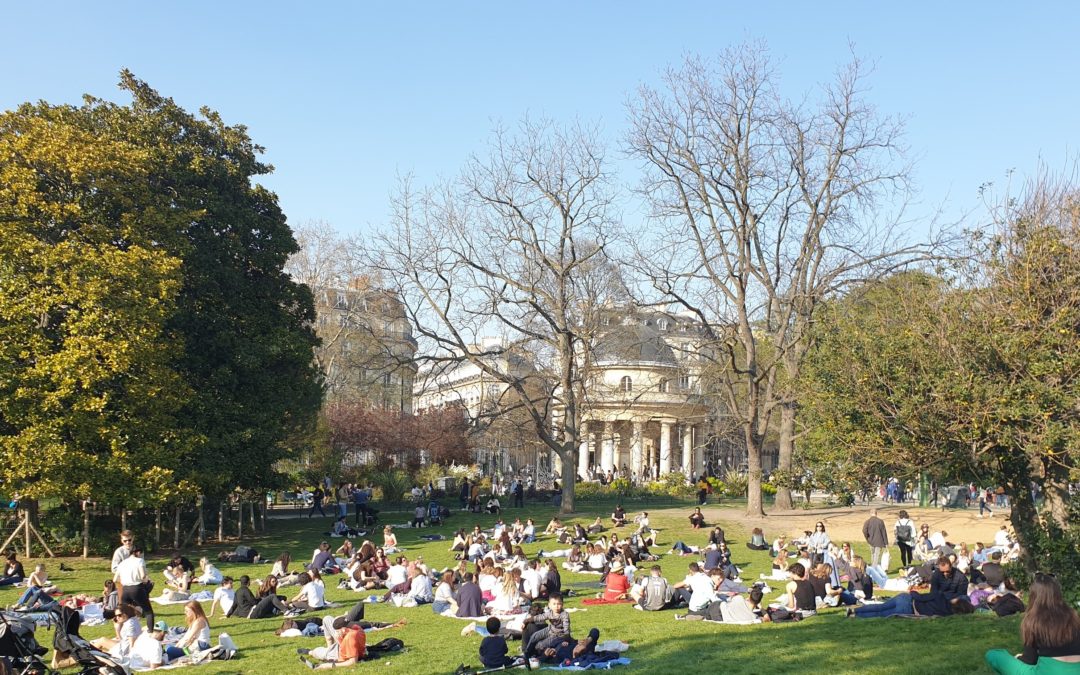I saw something startling in the grocery store the other day: A human face.
It was a consequence of the government’s recent decision to lift many COVID-19 restrictions. Most notable among them: the requirement that masks be worn in public indoor places, including restaurants, museums, stores, schools and workplaces. (They are still mandatory on public transit, planes, trains, stations and airports.)
This is happening in many European countries and is old news in the U.S. The striking thing about easing in France is that for two years, residents have been under a COVID regime that varied little across the length and breadth of the mainland. A shared experience for everyone, whether you agreed with it or demonstrated against it.
Now, we are free to choose, and it’s scary. I used to go to the Monoprix in my neighborhood secure in the knowledge that everyone was wearing a mask. Now, uncertainty reigns, at least to my order-loving mind. It’s the Wild West out there or, in the case of the grocery store, in there.

People can wear—quelle horreur! —whatever they want on their faces, or not. I keep my my mask on and creep along the aisles with my head turned toward the shelves.
The roots of my discomfort lie in France’s love of systems. My adopted country has, for instance, one education system, with one national education curriculum. It used to be said that at French schools everywhere in the world, students in a given class were on the same page of the same textbook on the same day. There is one health system, with one set of rules for which treatments are covered and how much (though supplemental private insurance allows those who can pay somewhat better access). There is one system for learning to ski and another for learning to ride a horse.
I had some quibbles with French education, but the horse-riding system really sold me on the concept. In the U.S., when I go a new stable and am asked my level, I need to deliver a long monologue about what I can and cannot do. In France, I just give a numbered grade. The system supplies the rest.
Given all this, there was never any question whether France would have a nationwide COVID system. Two years ago this month, the government ordered the entire country into one of Europe’s strictest lockdowns. You basically had to stay home all the time, unless you needed to leave for an approved reason. In that case, you had to fill out a form, or, later, an app, to justify your appearance on the street. Fines of €135 ($148) backed up the rules.

After two months and a sharp drop in case numbers, we were let out of our home jails. The indoor-masking rules not only persisted but were later augmented by a QR-code-driven pass on our cell phones showing vaccination status and test results. The pass is still required, in fact, to enter hospitals and other health establishments.
The system-less world of COVID has been widely welcomed, especially by schoolchildren and their parents. In this video, from Le Parisien newspaper, the first woman says, “We can smile! We see people’s faces! That changes everything!” The worker in the pharmacie says, “Something seemed to be missing at first, but we recover our normal ways quickly. We’re glad to see people again.” The little girl says she felt “bizarre” at first and wondered where the masks were but now is loving seeing faces. Others explain why they choose to keep wearing masks.
Health experts are skeptical of all that freedom. Cases here have been rising all month, after a steep plunge in February, and are among the highest in the developed world on a proportional basis. And that’s before the full effect of masklessness, which started mid-month, kicks in.

The government recommends mask-wearing only for the elderly and the immunocompromised, as well as for people who have tested positive for COVID (I should think so!), or with symptoms or who have been in contact with confirmed cases.
Plenty of medical experts, such as the head of the medical-personnel association for the health system, think more should be done. He calls for the wearing of masks inside “for a bit longer” as well as getting a vaccine booster shot—an area where France has indeed done well. Almost 54% of the population has received a booster, compared with 29% in the U.S. “So many people around me are COVID-positive,” he says in his tweet. “Some are indeed quite sick.”
Que de monde autour de moi covid + !! Certains sont quand même bien malades. Prenez soin de vous et de votre entourage, masquez-vous encore un peu à l'intérieur et pensez à faire le rappel du vaccin, avec le booster on est mieux protégé.
— Rémi Salomon (@RemiSalomon) March 25, 2022
France is not alone in loosening the rules in the face of rising cases, but the government has a special motivation: Presidential elections take place next month. (Good stuff on that in English here, here, and here, from Le Monde as recommended by the Cosmopolitan Globalist.) Incumbent Emmanuel Macron, ahead in the polls, is probably calculating that more people are happy about not wearing masks than are concerned about getting COVID—especially in the face of variants that, while highly transmissible, are less severe than before.
Still, more than 2 million people tested positive for the virus in March, and lines for testing are getting longer and longer. If this continues, residents of France will have another national shared experience to talk about: How it feels to get COVID.

Oy, I know someone who visited France and got COVID. Sigh.
Ditto, several, and had to delay their departures because they didn’t get a negative test in time.
Interesting about France but can’t say I care for their one size fits all way of doing things .I used to work for the state of Ohio and such views drove everyone crazy .Thanks for keeping us informed Anne .